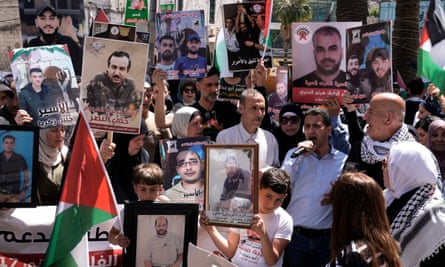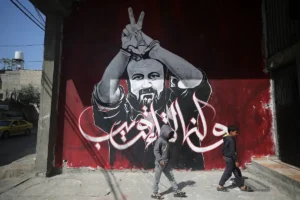Marwan Barghouti spends his days huddled in a cramped, dark, solitary cell, with no way to tend to his wounds, and a shoulder injury from being dragged with his hands cuffed behind his back.
Barghouti holds almost mythic status within Palestinian politics, seen as a figure whose potential to unify different factions has only grown during his 24 years in prison.
The books, newspapers and television that he used to be able to access have been gone since last October, along with any former cellmates. The lights that flicker in his cell each evening are intended to make sleep near impossible.
“Mentally he’s a very strong person, but physically his condition is deteriorating, you can see it. He’s struggling to see out of his right eye, as a result of one of the assaults,” said his lawyer Igal Dotan, who visited Barghouti in Israel’s Megiddo prison two months ago. “He has lost weight – he doesn’t look good. You wouldn’t recognise him if you compare his current appearance with the famous photos of him,” he said.
Israel jailed Barghouti on five counts of murder while accusing him of directing attacks against civilians, which he denies. His lawyers and supporters fear that as one of the highest profile Palestinian detainees, he was abused to send a message to others that no one is safe.
Former prisoners and numerous rights groups say that conditions inside Israeli jails for Palestinians changed overnight last October, after Hamas attacked towns and kibbutzim in southern Israel, killing about 1,200 people, mostly civilians, and taking another 250 hostage.


